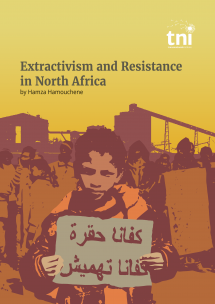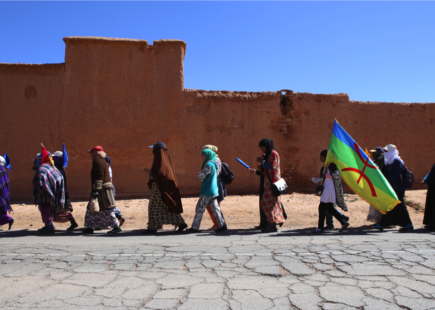Extractivism and resistance in North Africa
Northern African countries are key suppliers of natural resources to the global economy, from large- scale oil and gas extraction in Algeria and Tunisia, to phosphate mining in Tunisia and Morocco, to water-intensive agribusiness paired with tourism in Morocco and Tunisia. The commodification of nature and privatisation of resources entailed in these projects has led to serious environmental damages, and forced these countries into a subservient position in the global economy, sustaining and deepening global inequalities.

Downloads
-
Extractivism and resistance in North Africa (PDF, 5.66 MB)Average time to read: 25 minutes minutes
-
Extractivisme et Résistance en Afrique du Nord (PDF, 6.72 MB)Average time to read: 25 minutes minutes
-
النمط الاستخراجي ومقاومته في شمال افريقيا (PDF, 8.53 MB)Average time to read: 25 minutes minutes
Authors

Nadir Bouhmouch
This report documents several cases of natural resource extraction which take the form of brutal "accumulation by dispossession," degrading environments and ecosystems through the privatisation and commodification of land and water. However, these extractive activities have also been met with new waves of resistance and the entrance of new social actors onto the scene, demanding that wealth generated in resource projects be shared equitably in society. Are these new actors mainly motivated by environmental concerns, or are they fundamentally anti-systemic, seeking to undermine the basis of the capitalist extractive economy? Are these passing episodes of resistance, or do they represent a new development in the historical trajectory of class struggle in North Africa?
Book sale: Extractivism and resistance in North Africa.
